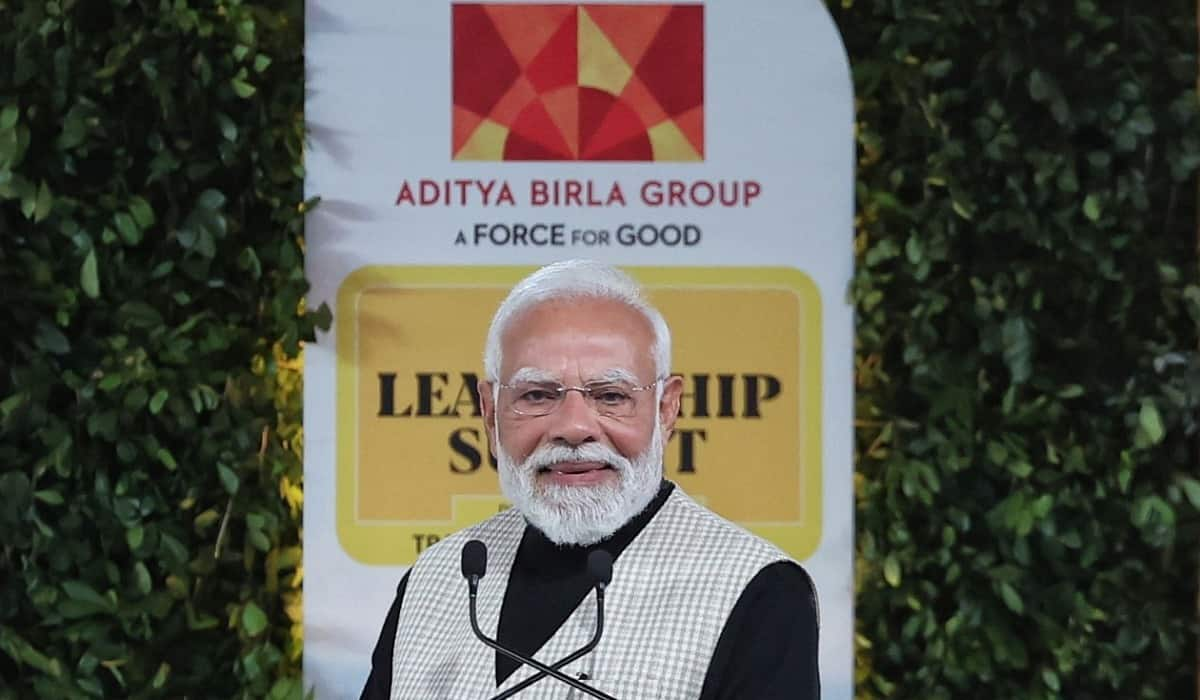In times of turbulence and disruption, a nation is blessed to have a leader who rises to become its moral compass and guiding spirit, providing vision, cohesion and direction to his people. And, in such a moment at the turn of the century, India found one in Atal Bihari Vajpayee, who was gifted in spirit, heart and mind.
For those of us who knew him, he was, first, the rarest of human beings, who touched and inspired everyone he met. He was compassionate to the core, generous in spirit, warm beyond measure and kind to a fault. He was deeply respectful of others and gifted with a rare sense of humour that he often turned upon himself.

Orator without parallel, he could switch from disarming humour to a lofty vision with ease, with a rare ability to connect with people naturally, to stir them to self-belief and to a higher cause. Sharply perceptive, he could summarize the most complex issues and discussions in a single sentence or question.
Born into a family of modest means and high ideals, he hailed from a small town in MP. His youth was defined by academic excellence and quest for public service during the gathering momentum of freedom struggle. Starting as an ordinary Karyakarta in the Jana Sangh, he organized the only truly national-level party to be formed in independent India – the BJP – and helmed its organization work after the passing away of Shri Syama Prasad Mookerjee and Pandit Deendayal Upadhyaya.

Through the four decades of leadership in Parliament, the struggle against Emergency (who can forget that memorable rally in Delhi’s Ramlila Maidan when his speech became the roar of the nation), the clarity to represent his party with passion but always speak for the nation, he defined the spirit of democracy in India. Firm in his political beliefs, but always accommodating and respectful of other points of view, he set the standards of debate in Parliament. In his simplicity and integrity, in his dignity and empathy, and a sense of personal non-attachment to the office, he became an inspiration for a nation of youth.
He rescued the economy from the morass of the mid-1990s, when political instability at home and an uncertain global environment had threatened to derail a still incipient economic reforms process. He sowed the seeds of much of the economic success that we have experienced over the past two decades. For him, growth was a means to empower the weakest and mainstream the marginalized. It’s that vision that continues to drive our government’s policy.

It was Atalji who prepared the foundations of an India that is ready to take on the mantle of global leadership in the 21st century. The futuristic economic policies and reforms of his government ensured prosperity for several Indians. His thrust on next-generation infrastructure particularly roads and telecom contributed to our country’s economic as well as social empowerment.
Atalji irreversibly changed India’s place in the world. He overcame the hesitation of our nation, the resistance of the world and threat of isolation to make India a nuclear weapons power. It was not a decision he took lightly, but one he knew was of paramount importance in the face of mounting challenges to India’s security. No longer would India’s security be vulnerable. At that moment of surge in national pride, his was a voice of restraint and responsibility. And, the world listened to the wisdom of the man of peace. Equally important, he then brought to bear his extraordinary understanding of world affairs and formidable diplomatic skills to gain global acceptance of new realities. Indeed, it is the combination of his legacies of creating strategic capabilities, promoting stronger economic growth, undertaking multi-directional diplomacy and harnessing of diaspora energies that is today the basis for the respect we command across the world.
He transformed five decades of estrangement with USA into an enduring strategic partnership in the course of five years. He also steered India to deep friendship with a new post-Soviet Russia through a strategic partnership in 2000. I had the privilege of accompanying him on a visit to Russia in November 2001 when we concluded a sister province agreement between Gujarat and Astrakhan.

With China, he made the boldest move for peace in an effort to overcome the burdens of a difficult past by establishing the mechanism of Special Representatives for boundary talks. Atal Ji’s conviction that these two ancient civilisations – which are rising powers – can work together to shape the global future continues to guide my thinking.
A person of grassroots, our neighbours were his priority. In many ways, he was the inspiration for, and even pioneer of, our Neighbourhood First policy. He was unwavering in his support as an opposition leader towards Bangladesh’s liberation. He went to Lahore in search of peace. With persistence and optimism that was his nature, he continued to search for peace and heal the wounds in J&K. But, he was resolute in winning the Kargil War. And, when our Parliament was struck, he made the world recognize the true nature and source of cross-border terrorism against India.
Personally, Atalji was an ideal, a guru, and role model who inspired me deeply. It was he who entrusted me with responsibilities both in Gujarat as well as at the national level. It was he who called me one evening in October 2001, and told me to go to Gujarat as the chief minister. When I told him that I had always worked in the organization, he said he was confident I would fulfill the people’s expectations. The faith he had in me was humbling.
Today, we are a self-assured nation, brimming with the energy of our youth and resolve of our people, eager for change and confident of achieving it, striving for clean and responsive governance, building future of inclusion and opportunity for all Indians. We engage the world as equals and in peace, and we speak for principles and support the aspirations of others. We are on the path that Atalji wanted us to take. He was ahead of the times, because he had a deep sense of history, and he could peer into the soul of India from his grasp of our civilizational ethos.
A life is to be judged not just by the extent of grief that follows when its light goes out. It is also to be measured by the lasting impact on the lives of people and the course of time. For that reason, Atalji was a true Ratna of Bharat. His spirit will continue to guide us as we build the New India of his dreams.













